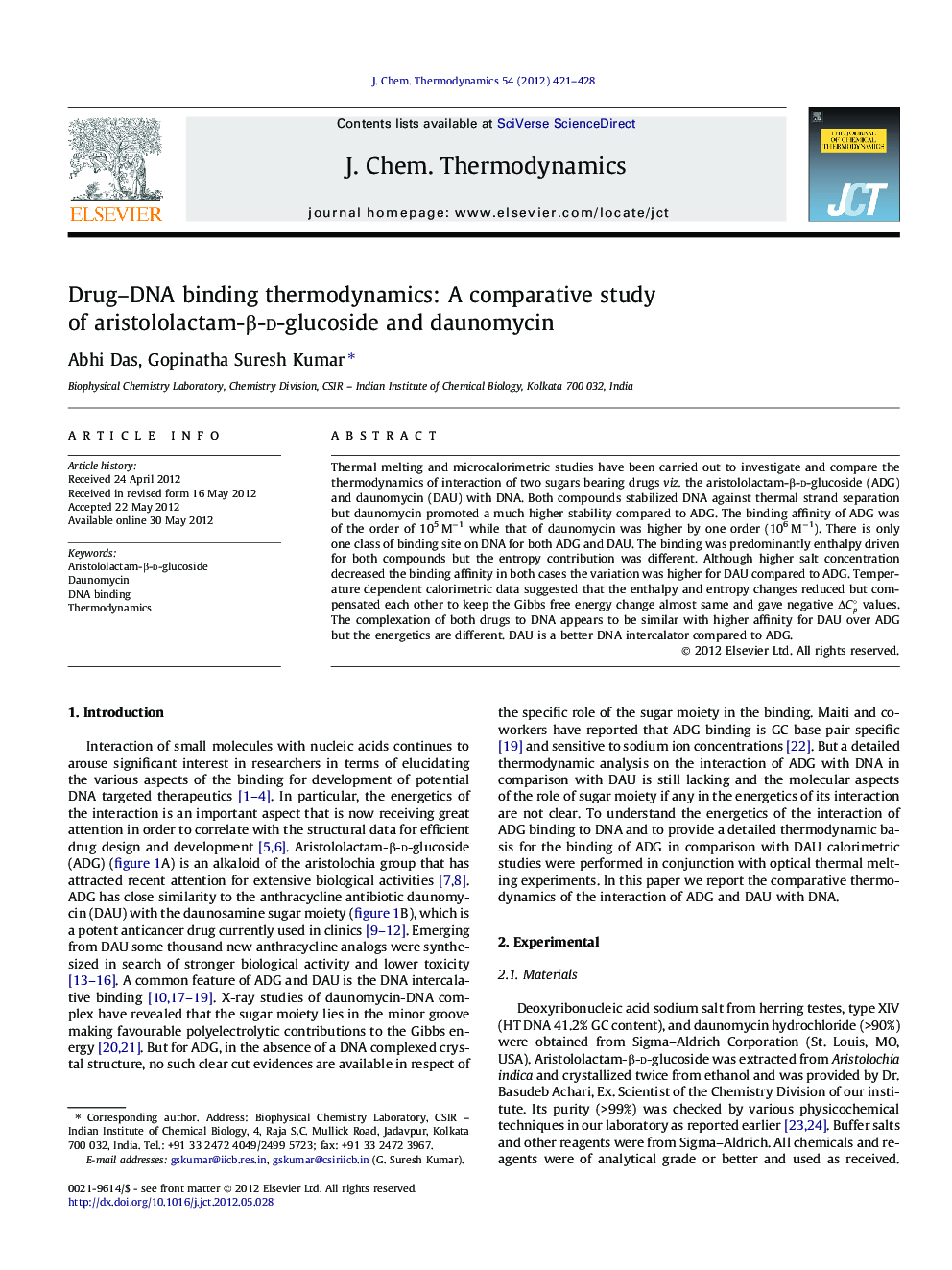| Article ID | Journal | Published Year | Pages | File Type |
|---|---|---|---|---|
| 215696 | The Journal of Chemical Thermodynamics | 2012 | 8 Pages |
Thermal melting and microcalorimetric studies have been carried out to investigate and compare the thermodynamics of interaction of two sugars bearing drugs viz. the aristololactam-β-d-glucoside (ADG) and daunomycin (DAU) with DNA. Both compounds stabilized DNA against thermal strand separation but daunomycin promoted a much higher stability compared to ADG. The binding affinity of ADG was of the order of 105 M−1 while that of daunomycin was higher by one order (106 M−1). There is only one class of binding site on DNA for both ADG and DAU. The binding was predominantly enthalpy driven for both compounds but the entropy contribution was different. Although higher salt concentration decreased the binding affinity in both cases the variation was higher for DAU compared to ADG. Temperature dependent calorimetric data suggested that the enthalpy and entropy changes reduced but compensated each other to keep the Gibbs free energy change almost same and gave negative ΔCp∘ values. The complexation of both drugs to DNA appears to be similar with higher affinity for DAU over ADG but the energetics are different. DAU is a better DNA intercalator compared to ADG.
Graphical abstractFigure optionsDownload full-size imageDownload as PowerPoint slideHighlights► Daunomycin has higher binding affinity to DNA than aristololactam-β-d-glucoside. ► The binding was enthalpy driven for both compounds. ► The entropy contribution to the free energy was opposite in these cases. ► The effect of salt was higher for DAU compared to ADG. ► DAU is a better intercalator than ADG.
